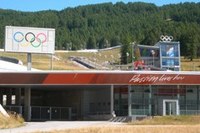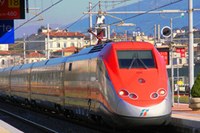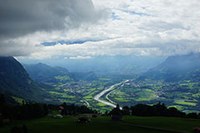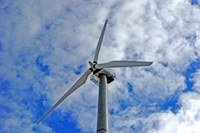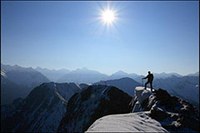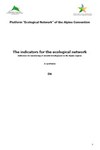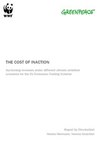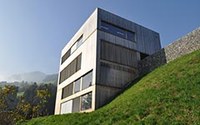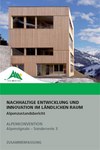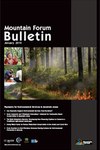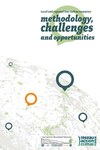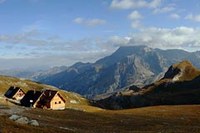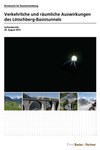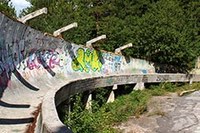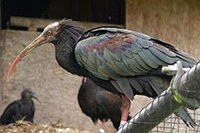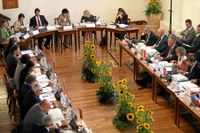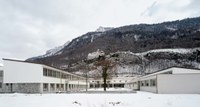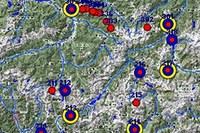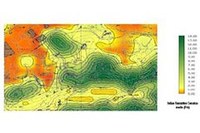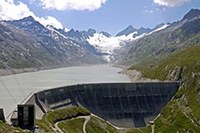Articles
Climate change: cc.alps looked many steps further
With the recently published compact "Water in climate change" the project "cc.alps - climate change: looking one step further" has come to an end. In the last four years, CIPRA International together with a wide range of experts and practitioners has shown what intelligent climate activities should look like. Read More…
Next generation to bear risk of Winter Olympics
The Swiss canton of Graubünden wants to hold a "sustainable" Winter Olympics in 2022. While the many open questions regarding the candidacy have stirred passions in Switzerland, Munich's candidacy is not quite so controversial. But time is pressing. Read More…
CIPRA's point of view:Italian French Summit: modal shift gets red light
The summit meeting last week between Italian leader Mario Monti and French president François Hollande covered plenty of ground - except for a rapid and effective modal shift from road to rail. Read More…
New Secretary-General for the Alpine Convention
The Permanent Secretariat of the Alpine Convention is getting a new head. In March 2013 the Austrian Markus Reiterer, diplomat and Alpine enthusiast, will replace the previous Secretary-General Marco Onida. Read More…
Liechtenstein is Europe's top energy country
All of Liechtenstein's municipalities have now been presented with the European Energy Award. The honour of being Europe's top energy country is a reason to celebrate - and a call for an effective climate policy. Read More…
An Alpine "arms race": the desire for fun and games
Europe's highest suspension bridge is being opened in Switzerland, while an Austrian peak is getting a four-armed cross that is accessible to visitors - unbelievable adventures in the Alps. Read More…
Out for gigantic Brenner wind farm
It was supposed to have been the highest wind farm in the Alps. Now a court has revoked the building permit for the wind turbines on the Sattelberg Mountain - referring also to the Alpine Convention in the grounds for its decision. Read More…
alpMedia turns ten
My editor always says that the word "I" has no place in a news text. But today it's my birthday so it's my turn to talk! Read More…
MountEE Project starts: sustainable public construction in Europe
Municipalities have a duty to act as models, especially as regards construction and renovation work. The MountEE Project makes it possible for municipalities in five European mountain regions to optimise their construction and renovation strategies. Read More…
Wolves: France wants to shoot them while Switzerland celebrates new-borns
In Switzerland they are celebrating the first new generation of wolves. But where should these wolves go? A national park in the south of France has initiated a debate on this topic - with consequences for the Alps. Read More…
National park under discussion
The Vanoise National Park in Savoy has a new charter. Representatives from the worlds of politics, economics and civil society have been working on it for over five years. Environmental groups have given it their support, but criticise its limited impact. The municipalities are nevertheless reluctant to sign up to it. Read More…
CIPRA's point of view: Alpine Convention must produce results
The renewal of the Alps needs youth. This was recognised by AlpWeek. The parties to the Alpine Convention are now being challenged to follow up their words with deeds - including as regards the energy question. Read More…
Olympic candidacy - a questionable venture?
Forecasts estimate that the 2022 Winter Olympics in Switzerland will cost 4.5 billion Swiss francs - or, as experience shows, even more. Is it worth it? In March 2013 the citizens of Graubünden will go to the polls to decide. Read More…
The northern bald ibis - welcome back to the wild!
Jazu is back. Last autumn he became the first wild northern bald ibis for 400 years to leave his breeding ground near Burghausen, Bavaria: in summer he found his own way back from Tuscany. Read More…
Using less energy is a genuine energy transition
CIPRA, the International Commission for the Protection of the Alps, is demanding a genuine energy transition: using less energy while maintaining the same quality of life. Sustainable building and energy efficiency are therefore clear priorities. The fragile Alpine arc should in future also remain in a state of equilibrium. CIPRA demands that the environment ministers meeting today in Poschiavo, Switzerland, and the Alpine states should also aim for this genuine energy transition. Read More…
Sustainable building in europe’s mountain municipalities
The house of the 21st century is nice and cool in summer, nice and warm in winter, hardly uses energy and – being built of local wood – stimulates the regional economy. The MountEE project explores ways in which municipalities in Europe’s mountain areas can create such a building culture. Seven partners in European mountain areas – among them CIPRA – work together, learn together and jointly improve their strategies and construction methods. Read More…
Connectivity video clip for mayors
Municipalities can collaborate in the improvement of ecological networks in many different ways. Therefore CIPRA wants to convince mayors for this topic with the help of a video clip. Read More…
Connectivity analysis for cross-border areas in the Alps
Which cross-border areas between Alpine countries are most relevant for further connectivity activities? To answer this question the Platform Ecological Network of the Alpine Convention has contracted an analysis. Read More…
Indicators on evaluating the progress of the Alpine ecological network
The establishment of the Alpine Ecological Network is a long process. In order to evaluate the progress, the Platform Ecological Network of the Alpine Convention has developed a set of indicators. Read More…
Econnect's drive living on in recharge.green
Ecological connectivity in the Alps can only be maintained if the production of renewable energy is managed in line with nature protection. Some of the Econnect partners seized the opportunity given by the last call of the Alpine Space Programme to work out a project on this issue. They were successful and "recharge.green" is about to start on 1st October. Read More…
Northeast Asia inspired by the Alpine Ecological Network
In South Korea, China and Japan activities have been started in favour of ecological connectivity. The major protected areas of these countries, the Ministry for environment of South Korea and other key stakeholders have been convinced by the importance of connected habitats thanks to the successful initiatives in the Alps. Read More…

